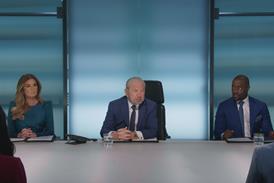Joining forces is the only effective way to deal with digital rivals
Too many stakeholders, too messy, too late – there are myriad reasons why a joint venture SVoD service between Britain’s biggest broadcasters might prove problematic. But there is an emerging sense of momentum behind the project, which is both shrouded in secrecy and attracting more and more interest.
Partly, that is because the status quo feels less appealing with every passing month. Before Christmas, Netflix will be made available via Sky (the 3.6 million Sky Q homes and those who take streaming service Now TV), offering the potential for it to generate even greater penetration via the UK’s biggest pay platform.
Even with its recent subscriber growth wobble, the SVoD giant is transforming the sector with its combination of deep pockets, quality content and straightforward model.
Consumers, and especially the next generation of TV viewers, fundamentally get it.
The positive sign is that the PSBs seem to agree that they are stronger together, and that after many decades of competition they now need to be aligned in their online service ambitions.
It’s too simplistic to suggest that my enemy’s enemy is my friend – but in this case it resonates.
What the PSBs won’t be able to do is have it both ways. In February, BBC Studios quite rightly trumpeted the largest-ever delegation of digital clients attending its Showcase sales event, including Google, Apple, Netflix and Amazon.
Yet it is the same premium content that these giants want to buy that will be required to make a success of a new service.
Plenty remains to be resolved, such as the rights situation for indie-made content, and how the joint venture might relate to the PSBs’ well-established, individual catch-up services.
How will consumers react to be able to watch a 30-day-old episode for free, but being charged to watch it on its 31st day after TX?
And is the new project a UK-only proposition, or could it build on the emerging BritBox platform to become a significant revenue driver around the world?
It’s easier to pose questions than identify solutions – but it’s vital the PSBs try. Not that long ago a suite of well-stocked linear channels and the ability to watch that content easily after transmission felt like a strong offering. No longer.
British broadcasters have talked for some time of transforming their VoD catch-up services into genuinely premium platforms in their own right, yet none has really succeeded.
By joining together, that leap might become more manageable and the end product a more effective way of preparing for the future.
Chris Curtis is the editor of Broadcast
































No comments yet